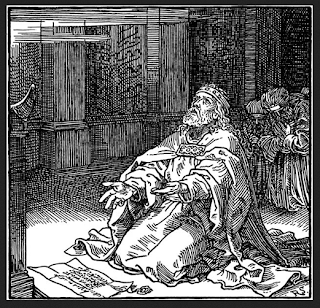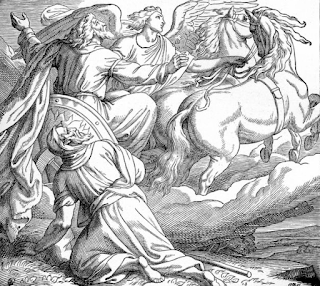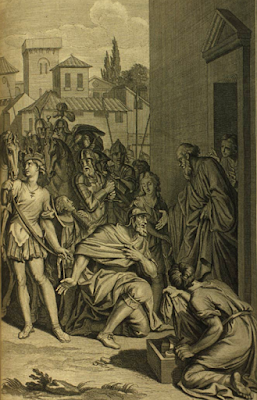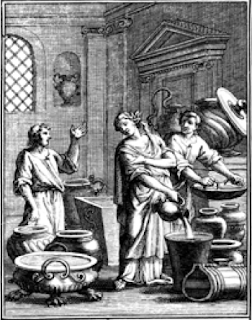 |
| Image: Pixabay |
TO CHEW ON: “Then the king stood by a pillar and made a covenant before the LORD to follow the LORD and to keep His commandments and His testimonies and His statues with all his heart and all his soul to perform the words of this covenant that were written in this book. And all the people took a stand for the covenant.” 2 Kings 23:3
In the up-and-down story of Judah’s kings we were introduced to Josiah in yesterday’s reading. He became Judah’s king at a mere eight years old. He was one of the rare kings that “...did what was right in the sight of the LORD” (2 Kings 22:2). This involved cleaning up the temple.
The cleanup unearthed a copy of the Book of the Law. When Shaphan the scribe read it to the king (who would probably have been in his early to mid-20s by then - 2 Kings 23:23), he tore his clothes in distress.
Our reading today continues the story, telling of how Josiah covenanted to follow that Book of the Law with his whole being. That involved ridding the land of pagan worship.
The details of this (2 Kings 23:4-20, 24,25) show the extent of Judah’s degradation. But wow, he really cleaned house! He burned idols, desecrated and destroyed pagan shrines, and rounded up priests and other practitioners and did away with them. Finally, he celebrated Passover once again. I think we could call what happened to Josiah “revival.”
I see in his story, some parallels of how we might pursue personal revival.
1. He rediscovered God’s Word (2 Kings 22:10,11)
Though we may not have lost God’s word physically, have we perhaps misplaced it in other ways? If we read it only rarely or as a matter of rote, let’s “find” it again and read it regularly with receptive hearts as God’s communication—His love letter—to us.
2. He cleaned up the land (2 Kings 23:4-20,24,25)
Maybe we too need to do some spiritual housecleaning. We might view what we’re reading, watching, and browsing with an eye to what these things are doing to us spiritually. We might search for objects of worship, like money, success, image, reputation etc. that have become our “idols” and “high places” and again put God on the throne of our lives.
3. He re-instituted Passover (2 Kings 23:21-23)
For us this might be as simple as once again meeting with Him regularly to pray and read the Bible, attend church, cultivate Christian friends, sign up for a Bible study, or listen to Christian programs and podcasts.
4. He led a generation back to God (2 Kings 23:3)
I love how Josiah’s decision impacted not only him but the whole nation: “And all the people took a stand for the covenant” - 2 Kings 23:3. Though we don’t have the clout of a king, our personal revival is bound to affect more than just ourselves. Nowadays with the internet and social media, we have the means to influence not only those with whom we interact face-to-face but virtually the whole world. Only eternity will reveal the impact of our decision to wholeheartedly follow Jesus.
PRAYER: Dear Father, thank You for the example of young Josiah. May I be as resolute in obedience and as ruthless in rooting sin out of my life and following You with my whole heart and soul.
PSALM TO PRAY: Psalm 108
*********
Unless otherwise noted all Scripture quotations are taken from the New King James Version®. Copyright © 1982 by Thomas Nelson, Inc. Used by permission. All rights reserved.
Thanks for reading! This year we are using The Bible Project "Timeless Reading Plan" to read through the Bible in 2018. If you'd like to read along in your own Bible, you can download a pdf of the reading plan HERE.










